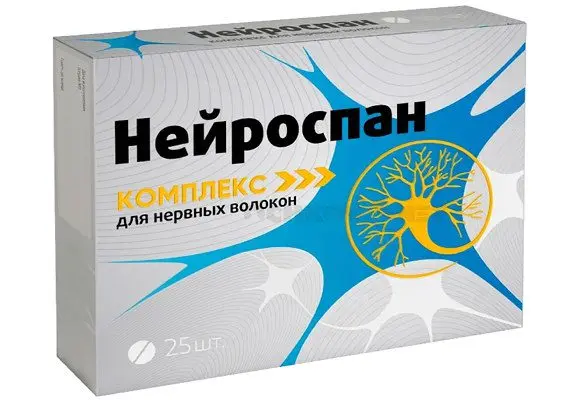Contents

The nervous system connects the entire body into a single whole, controls physical and mental activity. In the conditions of modern ecology and everyday stress, diseases, the nervous system is regularly subjected to aggressive attacks. And the task of each is to ensure its protection. You can achieve the goal by choosing the right products, as well as finding additional sources of nutrients. After all, if the cells of the brain and nerve endings do not receive nutrients and vitamins, they begin to age faster. And depression, insomnia, distraction and long recovery even after a cold are the result of a lack of nutrients, in particular vitamins.
Maintaining the work of the nervous system: what is needed for this
Every cell of the body needs nutrition: energy, minerals, and vitamins, which are catalysts for metabolic processes, promote regeneration and even slow down aging.
Nature is frugal and one vitamin controls and is responsible for several biochemical reactions. For the central nervous system, B vitamins are of paramount importance. These are cofactors – “helper molecules” that provide biochemical reactions. They contribute to the production of neurotransmitters – biologically active substances, through which the transmission of nerve impulses occurs.
Nervous regulation is carried out with the help of B vitamins, and of the 8 known, 5 are of the greatest importance:
thiamine pyrophosphate;
riboflavin;
choline;
folic acid;
cobalamin.
Other vitamins are also of great importance for maintaining the functioning of the nervous system: C, E, as well as zinc, magnesium, calcium, etc.
Vitamin B1 or thiamine pyrophosphate
Its main purpose is to convert the energy of food consumed into energy substrates that can be used by cells. Deficiency of this vitamin leads to the gradual death of neurons in the part of the brain that is responsible for memory, then in the hippocampus. Consequently, its sufficient presence affects the processes of restoration of nerve cells, regulates the conduction of signals along the nerve circuits.
Vitamin B1 cannot be synthesized in the body and must be supplied from outside, that is, with food or various dietary supplements and multivitamins. Natural sources of the vitamin are meat products, whole grains, nuts, and legumes.
According to research, a healthy person who adheres to the rules of rational nutrition covers the daily need for a vitamin, but. People suffering from diseases of the digestive tract, systemic diseases, and also at age are at risk of developing hypovitaminosis, which is manifested by a decrease in cognitive functions.
Vitamin B4 or choline
Choline supports various functions of the body, and each cell. This vitamin is involved in the production of fats that make up cell membranes. When combined with other B vitamins, choline does not affect gene expression.
If we talk about its role in the work and health of the nervous system, then in the course of biochemical reactions, choline is converted into a neurotransmitter that regulates unconscious body functions, such as heart rate and breathing.
Research data from 2012 and 2019 show that older patients with higher levels of choline have better cognitive function than those who are deficient in this vitamin.

Riboflavin or vitamin B6
Participates in the development of new red blood cells, which carry oxygen to each cell. This is also a cofactor that is involved in the metabolism of homocysteine, and its increase is a risk factor for Alzheimer’s disease.
The need for a vitamin depends on age: deficiency of the vitamin with age is one of the possible causes of cognitive decline in adults. It is known that providing the body with vitamins B2, B6 and B12 can be regarded as a factor preventing the development of migraine with aura.
Sufficient intake of vitamin B6 in combination with calcium reduces the severity of premenstrual syndrome and helps control both physical and psychological symptoms.
B9 or folic acid
If you ask a question – what vitamins are responsible for the nervous system? The answer can be unequivocal – B9. Folic acid is prescribed to women during pregnancy planning and gestation. It is especially important in the first weeks of fetal development, otherwise the probability of fetal neural tube defects is too high.
Cobalamin or vitamin V12
This vitamin is needed not only by the nervous system, but also by the hematopoietic system. With a deficiency of this vitamin, anemia develops – “anemia”, i.e. a decrease in the number of red blood cells or hemoglobin, which carries oxygen in a unit volume of blood below a certain value.
Vitamin B12 is actively involved in the formation of the myelin sheath of nerves. Damage to it disrupts the transmission of impulses and leads to serious consequences.
Research conducted in 2018 showed that vitamin B12 levels play an important role in the development of depression and anxiety disorders. The researchers note that the relief of hypovitaminosis helps in controlling the disease and preventing possible complications. And further intake of the vitamin for a certain period of time will reduce the likelihood of a relapse by 73% in the future.
Studies show that cobalamin promotes the speedy healing of skin wounds, including those with diabetes.

Antioxidants
Oxidative stress is a predisposing factor for the development of non-degenerative diseases, such as Alzheimer’s disease, etc. These reactions happen all the time, and the body can cope with its effects through the use of antioxidants. These are substances that prevent the accumulation of free radicals.
Antioxidants prevent premature aging of the body, including the nervous system. And this is a whole group of substances, which include vitamins, for example, B6, C and A.
Who needs to take B vitamins
The source of vitamins is food, but there are a number of circumstances in which an additional source of nutrients is recommended. Vitamins to strengthen the nervous system are necessary:
Pregnant women. With special emphasis on B9, which prevents malformations of the neural tube of the fetus and B12 for the prevention of anemia and the normal functioning of the nervous system.
I am vegetarian and vegan. In food of plant origin, there is no whole group of vitamins, that is, they can only be obtained from animal products.
People who have undergone any kind of surgery. Any operation is an injury that leads to damage to the nerve endings. The body can compensate for these damages over time, but reserves are needed. Vitamins for the restoration of nerve fibers: B1, B6, B12, etc.
Elderly people. After 60 years, additional funds are recommended to restore the nervous system and maintain its normal functioning. Indeed, at this age, people are most sensitive to hypovitaminosis and their consequences can be more serious: a sharp and significant deterioration in cognitive functions, depressive states, etc.
People with chronic diseases. Be sure to additionally take B vitamins for people with autoimmune diseases, diabetes (for the treatment and prevention of polyneuropathy), cardiovascular pathologies and, of course, neurological ones.
How to choose the right nutritional supplement?
It is necessary to choose dietary supplements for the restoration of nerve fibers based on human needs. In most cases, these vitamins do not interact and do not interfere with the effects of the medications taken, but the opposite reaction can occur.
Chemotherapy, anticonvulsants, tuberculosis medications, and blood pressure medications can lower blood levels of B vitamins. Therefore, complex therapy involves the additional intake of food supplements as sources of vitamins.

Complex “Neurospan for nerve fibers” – the formula is enhanced by increasing the concentration of uridine monophosphate. It is a component that promotes the restoration of the myelin sheath of nerves. This component plays an unprecedented role in the restoration of nerve endings after injuries, organic damage.
The complex contains choline, vitamin B1, B6, B12, B9, which have a positive effect on the metabolism of nerve cells and the formation of neural connections between them. All this together leads to an improvement in the functioning of the central nervous system.
The scope of the complex is diverse:
chronic pain, including backache;
neurological diseases of the musculoskeletal system;
neuralgia;
polyneuropathy of various origins;
the period of rehabilitation after surgery, ischemic stroke and traumatic brain injury;
as an additional source of vitamins for nerve fibers and their recovery in patients aged and with dementia.
You can buy in pharmacies of the city or on the website http://neurospan.ru/









